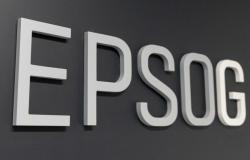Vilma Jankūnė, the head of the administrative group of the project, Dr. Dr. Aistė Ragauskaitė and Šiauliai State College distance studies coordinator Rasa Škimelienė.
During the project, high school teams consisting of pedagogues, information technology specialists and designers have the opportunity to digitize study subjects, modules, assignments or laboratory work.
During the project implementation period, it is planned to create 1,000 sets of digital educational materials prepared by high school teachers. This is how the project progress and main goal was presented by V. Jankūnė, head of the administrative group of the project “Digital education transformation”.
The creative process
First, a working group was created to develop criteria for digital teaching tools for higher education. Taking them into account, qualification improvement programs were prepared and teachers were trained on how to prepare digital teaching aids.
The teachers later applied the knowledge gained during the training to create digital solutions together with their high school students.
According to the head of VMU Professional Competence Development Center dr. A.Ragauskaitė, even before the creation of digital products, the focus of the EdTech center on improving the competences of teachers helped to properly apply theoretical knowledge in practice. “The entire mechanism was created, it was emphasized that first we need to improve our competences, get acquainted and deepen our knowledge in the digital world, and then apply the acquired knowledge in practice. This is an excellent model of professional development and competences”, said Dr. A. Ragauskaite.
The teachers of Šiauliai State College chose to digitize the subjects of different study programs. According to Rasa Škimelienė, the coordinator of distance studies, such a choice was made in the hope of maximum benefit, in order to complement the work in the auditorium and convey the material to the students of continuous studies. When planning to have a kind of “ambassador” for the development of a digital learning tool in each department, one or two subjects were created for different study programs.
It is true that at the beginning of the project implementation, the college teachers wondered whether it was really realistic to digitize one or another subject, but the achieved results showed that there was nothing to doubt. “Some teachers assessed that their subject is very theoretical and there are few opportunities to make it attractively interactive, while others, on the contrary, decided how to transfer the material of a particularly practical subject to the virtual environment. The final results showed that the competences acquired in the training, the use of creativity and simply pedagogical ambition allowed both theorists and practitioners to achieve equally high goals”, R. Škimelienė shared her thoughts.
In Šiauliai State College, when digitizing study subjects, the teachers covered such areas as building structures, integration of the disabled, financial accounting, massage, methodology of applied scientific research and others. Teachers applied QR codes to mark attendance, integrated tests, crosswords, and submissions with verification questions for self-testing. Audio recordings of textual material, discussion forums, and valuable video resources are also embedded. According to R. Škimelienė, all this has become part of the modern digital learning tool.
At Vytautas the Great University, such subjects as sports psychology, health sociology, art, various foreign languages, ecology of forest ecosystems and others were digitized. According to dr. A.Ragauskaitės, with the help of digital solutions, everything seems to have come together in a clear, integrated system.
There were teachers who chose to prepare the assignment as a digital learning tool. Currently, a virtual game has been created in which students have to complete a sequence of tasks after being trapped in a virtual company. Music dictation for students was also digitized – it is believed that this tool has no analogues in Lithuania. The teachers also discovered escape rooms, a digital tool that creates a serious, gamified, cognitive challenge.
Results and challenges
A.Ragauskaitė says that both the creative process and the achieved results are pleasing. Such results were achieved thanks to the work of many hardworking, creative and innovative VMU teachers. “I know that the tools are confidently used by students, and their feedback is the best. They get digitally augmented content. In fact, in training, we already asked each teacher to think about their final product, digital learning tools.
Our department advised teachers individually, we looked for solutions together in creative sessions, colleagues actively shared experiences with each other in contact training, exchanged opinions on how useful digital tools can be used when creating tools”, said the head of the Center for the Development of Professional Competences at VMU.
Although the head of the VMU Professional Competence Development Center is very happy with the results achieved, she does not hide that in order to create the best possible digital product and meet the requirements, additional discussions were needed. “Teaching content is the author’s work of each teacher. Expertise needed to be transferred to an even wider digital world. I won’t hide it, there were quite a few discussions with the EdTech center team regarding requirements, clarifications, meetings where good examples were demonstrated. Now we see that we would do something differently, but in this case we are really proud of the result we got”, said A.Ragauskaitė.
The distance studies coordinator of Šiauliai State College says that eight digital learning tools have already been created in the college during the project, and much more are planned to be created in the spring semester.
“These digital tools dictate a new standard for digital study content, so the versions of distance courses created in previous years will be updated accordingly, and the future ones will be created with a new design. As with anything new, there is excitement at first, both the phase of acquiring digital competence and planning how to organize your studies to include even more digital content. However, the discipline of the teacher’s work, the clear guidelines provided by the NŠA, and the mutual cooperation of the creators helped to achieve good results,” said R. Škimelienė.
The activity is financed by the European Union – NextGenerationEU. The activity is carried out in the implementation of the project “Digital transformation of education (EdTech)”.
Tags: teachers create virtual games digitize teaching materials
-





